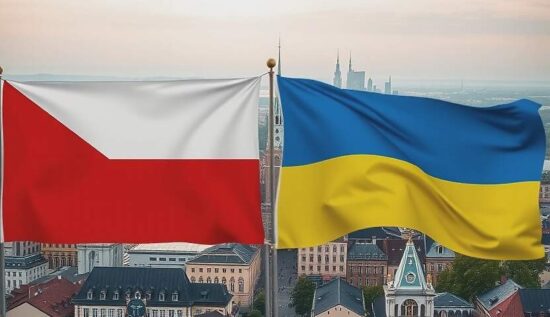The Czech Republic is preparing for a possible wave of migration from Ukraine after the end of the conflict with Russia, Interior Minister Vít Rakušan announced on Tuesday. The minister’s proposal also includes the end of the preferential treatment of Ukrainians seeking asylum in the country.
EU countries, including the Czech Republic, have granted temporary protection to Ukrainians who came to the country as refugees and have offered various assistance programs. In an interview with Novinky.cz, Rakušan expressed his concern about a possible increase in the number of migrants if the war in Ukraine ends, as men of fighting age will then be able to leave the country legally.
“Regardless of how the war ends, no one will be able to come here under temporary protection after that” Rakušan assured, who is also the deputy prime minister.
After a change in policy, applications for residence permits, including those of Ukrainian men who want to be reunited with their families in the Czech Republic, will be processed under normal residence rules, the minister said. Furthermore, Ukrainians will be treated equally with other foreign nationals who apply for social benefits, such as housing allowances, he added.
According to official statistics, more than 397,000 Ukrainians with a protection status are currently living in the Czech Republic. Rakušan noted that about half of these people have expressed the intention to stay in the country even after the conflict with Russia ends. However, some of them might change their minds if the Czech Republic implements the minister’s plan. The authorities estimate that the Czech Republic could take in around 200,000 Ukrainians in the long run.
Prague is working with Warsaw to achieve the necessary adjustments in the EU, the minister said. Poland has become one of the main host countries for Ukrainians since the escalation of the conflict in February 2022, with estimates suggesting that around 990,000 Ukrainians have settled in the country, doubling the Ukrainian diaspora in Poland. The two countries are planning their response based on their shared experiences. Rakušan criticized that “Spain, France, or other countries that do not face the same pressing problems cannot make a proposal”.
Polish authorities and media have recently expressed concerns that Ukrainian war veterans might pose a security risk. Not long ago, the Polish President Andrzej Duda warned that demobilized soldiers might contribute to organized crime, while the military psychiatrist Radosław Tworus said that Europe should prepare for an influx of veterans suffering from post-traumatic stress disorders. Last year, according to reports, 9,753 of the 16,437 foreigners arrested in Poland were Ukrainians, making them the largest group of non-Polish foreigners arrested in the country.





